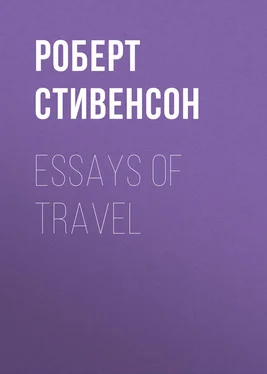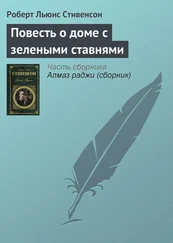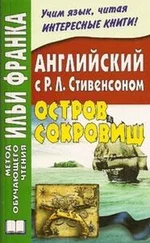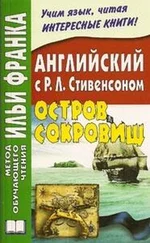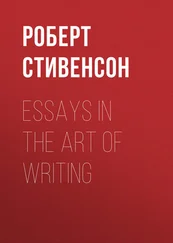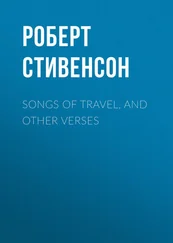Роберт Стивенсон - Essays of Travel
Здесь есть возможность читать онлайн «Роберт Стивенсон - Essays of Travel» — ознакомительный отрывок электронной книги совершенно бесплатно, а после прочтения отрывка купить полную версию. В некоторых случаях можно слушать аудио, скачать через торрент в формате fb2 и присутствует краткое содержание. Жанр: literature_19, foreign_antique, foreign_prose, Путешествия и география, на английском языке. Описание произведения, (предисловие) а так же отзывы посетителей доступны на портале библиотеки ЛибКат.
- Название:Essays of Travel
- Автор:
- Жанр:
- Год:неизвестен
- ISBN:нет данных
- Рейтинг книги:3 / 5. Голосов: 1
-
Избранное:Добавить в избранное
- Отзывы:
-
Ваша оценка:
- 60
- 1
- 2
- 3
- 4
- 5
Essays of Travel: краткое содержание, описание и аннотация
Предлагаем к чтению аннотацию, описание, краткое содержание или предисловие (зависит от того, что написал сам автор книги «Essays of Travel»). Если вы не нашли необходимую информацию о книге — напишите в комментариях, мы постараемся отыскать её.
Essays of Travel — читать онлайн ознакомительный отрывок
Ниже представлен текст книги, разбитый по страницам. Система сохранения места последней прочитанной страницы, позволяет с удобством читать онлайн бесплатно книгу «Essays of Travel», без необходимости каждый раз заново искать на чём Вы остановились. Поставьте закладку, и сможете в любой момент перейти на страницу, на которой закончили чтение.
Интервал:
Закладка:
Mackay was a hot bigot. He would not hear of religion. I have seen him waste hours of time in argument with all sorts of poor human creatures who understood neither him nor themselves, and he had had the boyishness to dissect and criticise even so small a matter as the riddler’s definition of mind. He snorted aloud with zealotry and the lust for intellectual battle. Anything, whatever it was, that seemed to him likely to discourage the continued passionate production of corn and steam-engines he resented like a conspiracy against the people. Thus, when I put in the plea for literature, that it was only in good books, or in the society of the good, that a man could get help in his conduct, he declared I was in a different world from him. ‘Damn my conduct!’ said he. ‘I have given it up for a bad job. My question is, “Can I drive a nail?”’ And he plainly looked upon me as one who was insidiously seeking to reduce the people’s annual bellyful of corn and steam-engines.
It may be argued that these opinions spring from the defect of culture; that a narrow and pinching way of life not only exaggerates to a man the importance of material conditions, but indirectly, by denying him the necessary books and leisure, keeps his mind ignorant of larger thoughts; and that hence springs this overwhelming concern about diet, and hence the bald view of existence professed by Mackay. Had this been an English peasant the conclusion would be tenable. But Mackay had most of the elements of a liberal education. He had skirted metaphysical and mathematical studies. He had a thoughtful hold of what he knew, which would be exceptional among bankers. He had been brought up in the midst of hot-house piety, and told, with incongruous pride, the story of his own brother’s deathbed ecstasies. Yet he had somehow failed to fulfil himself, and was adrift like a dead thing among external circumstances, without hope or lively preference or shaping aim. And further, there seemed a tendency among many of his fellows to fall into the same blank and unlovely opinions. One thing, indeed, is not to be learned in Scotland, and that is the way to be happy. Yet that is the whole of culture, and perhaps two-thirds of morality. Can it be that the Puritan school, by divorcing a man from nature, by thinning out his instincts, and setting a stamp of its disapproval on whole fields of human activity and interest, leads at last directly to material greed?
Nature is a good guide through life, and the love of simple pleasures next, if not superior, to virtue; and we had on board an Irishman who based his claim to the widest and most affectionate popularity precisely upon these two qualities, that he was natural and happy. He boasted a fresh colour, a tight little figure, unquenchable gaiety, and indefatigable goodwill. His clothes puzzled the diagnostic mind, until you heard he had been once a private coachman, when they became eloquent and seemed a part of his biography. His face contained the rest, and, I fear, a prophecy of the future; the hawk’s nose above accorded so ill with the pink baby’s mouth below. His spirit and his pride belonged, you might say, to the nose; while it was the general shiftlessness expressed by the other that had thrown him from situation to situation, and at length on board the emigrant ship. Barney ate, so to speak, nothing from the galley; his own tea, butter, and eggs supported him throughout the voyage; and about mealtime you might often find him up to the elbows in amateur cookery. His was the first voice heard singing among all the passengers; he was the first who fell to dancing. From Loch Foyle to Sandy Hook, there was not a piece of fun undertaken but there was Barney in the midst.
You ought to have seen him when he stood up to sing at our concerts – his tight little figure stepping to and fro, and his feet shuffling to the air, his eyes seeking and bestowing encouragement – and to have enjoyed the bow, so nicely calculated between jest and earnest, between grace and clumsiness, with which he brought each song to a conclusion. He was not only a great favourite among ourselves, but his songs attracted the lords of the saloon, who often leaned to hear him over the rails of the hurricane-deck. He was somewhat pleased, but not at all abashed, by this attention; and one night, in the midst of his famous performance of ‘Billy Keogh,’ I saw him spin half round in a pirouette and throw an audacious wink to an old gentleman above.
He would not have hurt the feelings of a fly, nor throughout the passage did he give a shadow of offence; yet he was always, by his innocent freedoms and love of fun, brought upon that narrow margin where politeness must be natural to walk without a fall. He was once seriously angry, and that in a grave, quiet manner, because they supplied no fish on Friday; for Barney was a conscientious Catholic. He had likewise strict notions of refinement; and when, late one evening, after the women had retired, a young Scotsman struck up an indecent song, Barney’s drab clothes were immediately missing from the group. His taste was for the society of gentlemen, of whom, with the reader’s permission, there was no lack in our five steerages and second cabin; and he avoided the rough and positive with a girlish shrinking. Mackay, partly from his superior powers of mind, which rendered him incomprehensible, partly from his extreme opinions, was especially distasteful to the Irishman. I have seen him slink off with backward looks of terror and offended delicacy, while the other, in his witty, ugly way, had been professing hostility to God, and an extreme theatrical readiness to be shipwrecked on the spot. These utterances hurt the little coachman’s modesty like a bad word.
THE SICK MAN
One night Jones, the young O’Reilly, and myself were walking arm-in-arm and briskly up and down the deck. Six bells had rung; a head-wind blew chill and fitful, the fog was closing in with a sprinkle of rain, and the fog-whistle had been turned on, and now divided time with its unwelcome outcries, loud like a bull, thrilling and intense like a mosquito. Even the watch lay somewhere snugly out of sight.
For some time we observed something lying black and huddled in the scuppers, which at last heaved a little and moaned aloud. We ran to the rails. An elderly man, but whether passenger or seaman it was impossible in the darkness to determine, lay grovelling on his belly in the wet scuppers, and kicking feebly with his outspread toes. We asked him what was amiss, and he replied incoherently, with a strange accent and in a voice unmanned by terror, that he had cramp in the stomach, that he had been ailing all day, had seen the doctor twice, and had walked the deck against fatigue till he was overmastered and had fallen where we found him.
Jones remained by his side, while O’Reilly and I hurried off to seek the doctor. We knocked in vain at the doctor’s cabin; there came no reply; nor could we find any one to guide us. It was no time for delicacy; so we ran once more forward; and I, whipping up a ladder and touching my hat to the officer of the watch, addressed him as politely as I could —
‘I beg your pardon, sir; but there is a man lying bad with cramp in the lee scuppers; and I can’t find the doctor.’
He looked at me peeringly in the darkness; and then, somewhat harshly, ‘Well, I can’t leave the bridge, my man,’ said he.
‘No, sir; but you can tell me what to do,’ I returned.
‘Is it one of the crew?’ he asked.
‘I believe him to be a fireman,’ I replied.
I dare say officers are much annoyed by complaints and alarmist information from their freight of human creatures; but certainly, whether it was the idea that the sick man was one of the crew, or from something conciliatory in my address, the officer in question was immediately relieved and mollified; and speaking in a voice much freer from constraint, advised me to find a steward and despatch him in quest of the doctor, who would now be in the smoking-room over his pipe.
Читать дальшеИнтервал:
Закладка:
Похожие книги на «Essays of Travel»
Представляем Вашему вниманию похожие книги на «Essays of Travel» списком для выбора. Мы отобрали схожую по названию и смыслу литературу в надежде предоставить читателям больше вариантов отыскать новые, интересные, ещё непрочитанные произведения.
Обсуждение, отзывы о книге «Essays of Travel» и просто собственные мнения читателей. Оставьте ваши комментарии, напишите, что Вы думаете о произведении, его смысле или главных героях. Укажите что конкретно понравилось, а что нет, и почему Вы так считаете.
